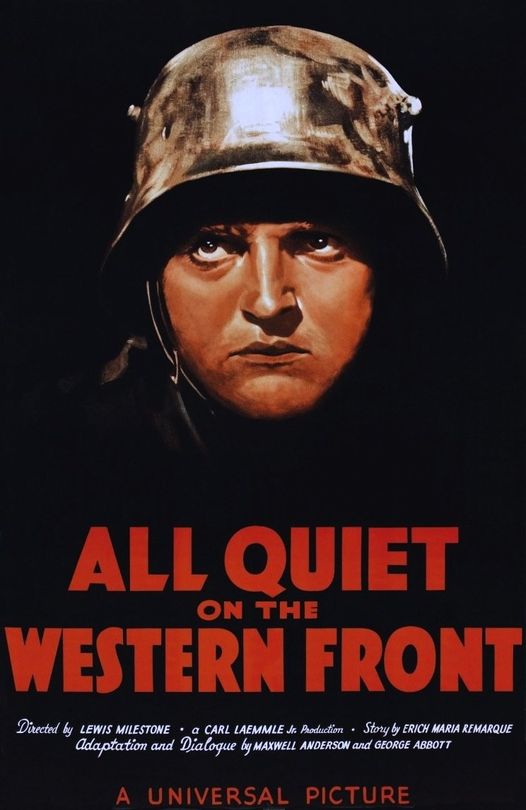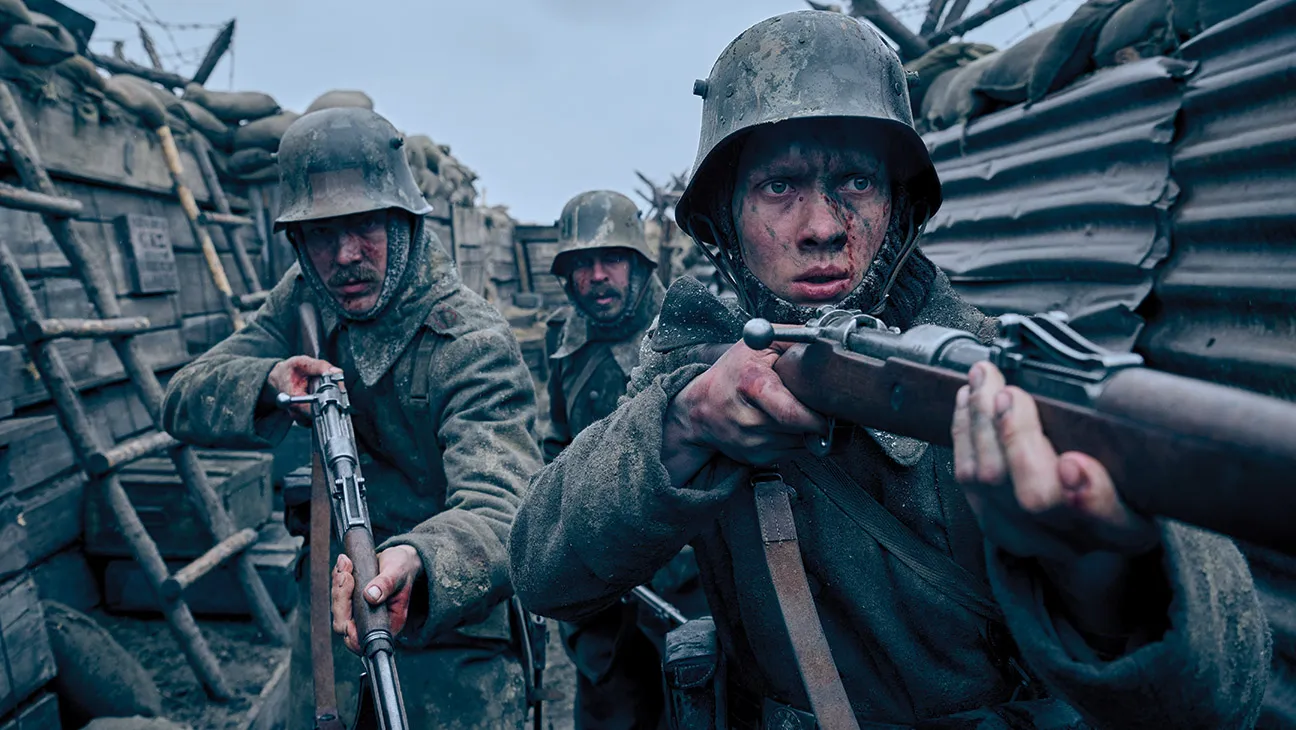All Quiet on the Western Front (1930)

“All Quiet on the Western Front” a cinematic masterpiece released in 1930 and directed by Lewis Milestone, stands as a poignant and enduring portrayal of the horrors of war and its profound impact on those who experience it firsthand. Adapted from Erich Maria Remarque’s acclaimed novel, the film captures the harrowing journey of a group of young German soldiers during World War I, offering a visceral exploration of the human cost of conflict.

The film had its Los Angeles premiere in 1930, marking a significant moment in cinematic history as audiences were introduced to its powerful narrative and groundbreaking portrayal of war. Directed by Lewis Milestone, “All Quiet on the Western Front” garnered critical acclaim and resonated with viewers worldwide for its raw depiction of the brutal realities faced by soldiers on the front lines.

The narrative centers on Paul Bäumer, played by Lew Ayres, and his comrades as they navigate the trenches and battlefields of the Western Front. Their idealistic notions of patriotism and glory are shattered by the grim realities of warfare, as they confront fear, loss, and the dehumanizing effects of combat. Lew Ayres delivers a poignant performance, capturing Paul’s emotional journey from youthful enthusiasm to profound disillusionment.

“All Quiet on the Western Front” received widespread acclaim for its realistic portrayal of war, achieved through innovative cinematography and gripping storytelling. The film’s harrowing battle sequences and evocative imagery immerse viewers in the chaos and devastation of World War I, highlighting the toll on both body and spirit endured by soldiers on all sides of the conflict.
At the 3rd Academy Awards ceremony in 1930, “All Quiet on the Western Front” made history by winning two prestigious Academy Awards. It was awarded Best Director for Lewis Milestone’s masterful direction, which skillfully balanced the film’s emotional intensity with its sweeping scope and thematic depth. Additionally, the film took home the coveted Best Picture award, solidifying its place as a landmark achievement in cinematic history.

Beyond its critical and commercial success, “All Quiet on the Western Front” sparked important conversations about the human cost of war and the futility of violence. Its anti-war message resonated with audiences worldwide, prompting reflection on the lasting scars left by conflict and the enduring quest for peace.
In conclusion, “All Quiet on the Western Front” remains a timeless testament to the power of cinema to illuminate the human experience and provoke social consciousness. With Lew Ayres’ unforgettable performance, Lewis Milestone’s visionary direction, and its impactful portrayal of war’s devastating effects, the film continues to resonate with audiences as a powerful reminder of the sacrifices made and the scars borne by those who serve in times of conflict.